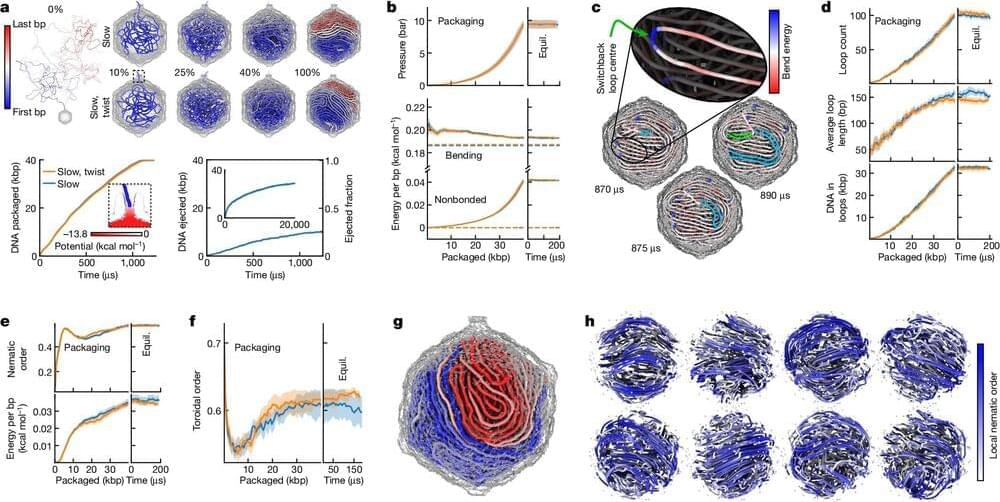A computational model of the more than 26 million atoms in a DNA-packed viral capsid expands our understanding of virus structure and DNA dynamics, insights that could provide new research avenues and drug targets, University of Illinois Urbana-Champaign researchers report in the journal Nature.
“To fight a virus, we want to know everything there is to know about it. We know what’s inside in terms of components, but we don’t know how they’re arranged,” said study leader Aleksei Aksimentiev, an Illinois professor of physics. “Knowledge of the internal structures gives us more targets for drugs, which tend to focus on receptors on the surface or replication proteins.”
Viruses keep their genetic material —either DNA or RNA—packaged in a hollow particle called a capsid. While the structures of many hollow capsids have been described, the structure of a full capsid and the genetic material inside it has remained elusive.










Comments are closed.